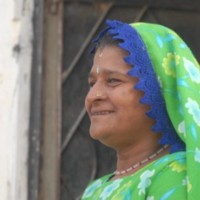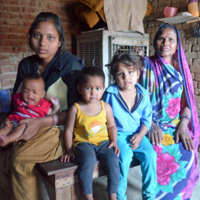
The slaveholder hired men armed with guns and axes. And they guarded us the entire day. They would fire their guns into the air at night to terrorise us, so that we wouldn’t try to escape.
The slaveholder kept an eye on my daughters. He wanted to use them for sex.
People are helpless because they have no skills or education. There’s nobody there to guide them to fight against the slaveholders.
All people are equal, and I want to help others, so that they don’t suffer what I have suffered. The slaveholders have sent messages that I will be murdered, but I don’t fear them anymore, and I will continue to fight. That is the spirit I have inside me.
As told to Free the Slaves









